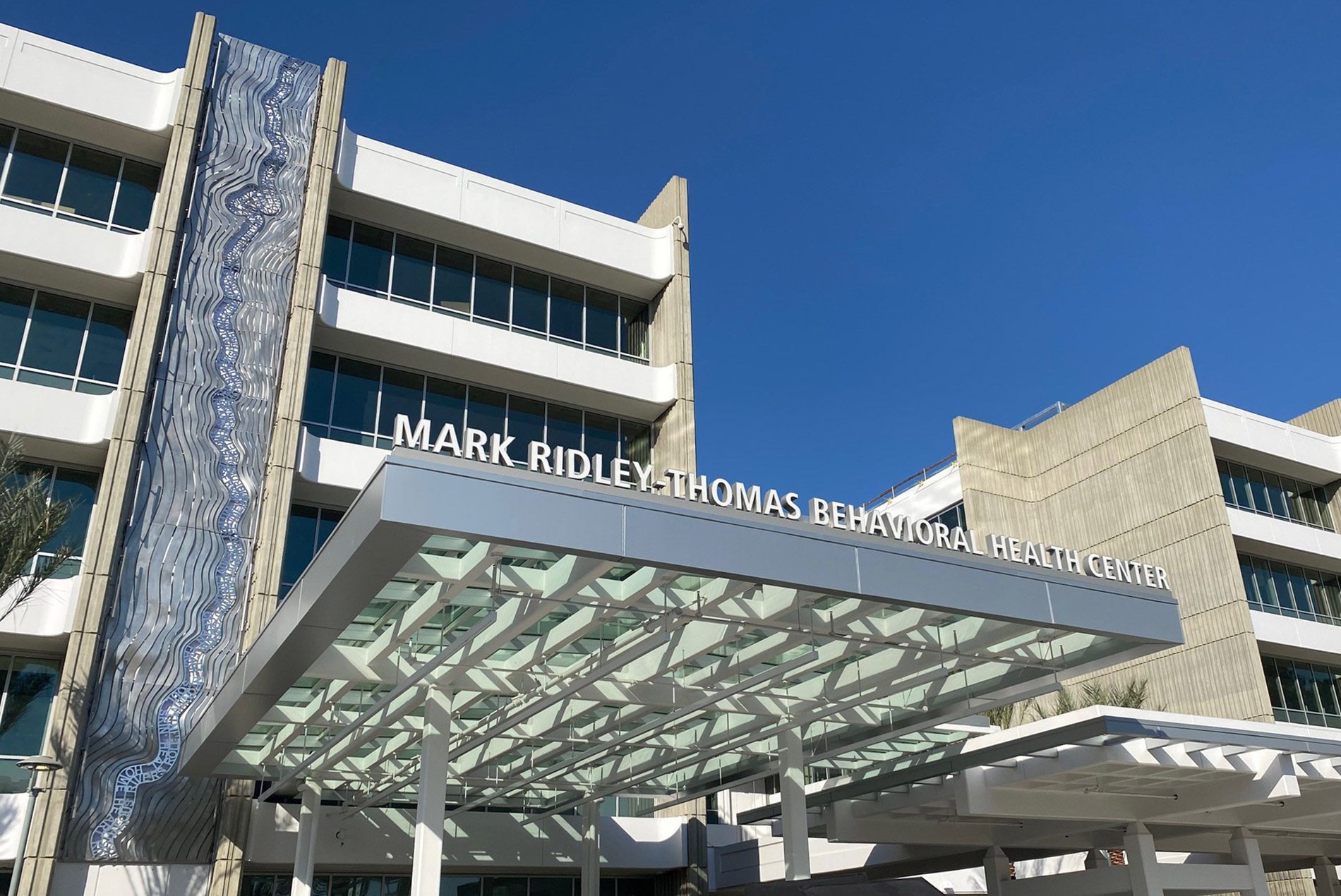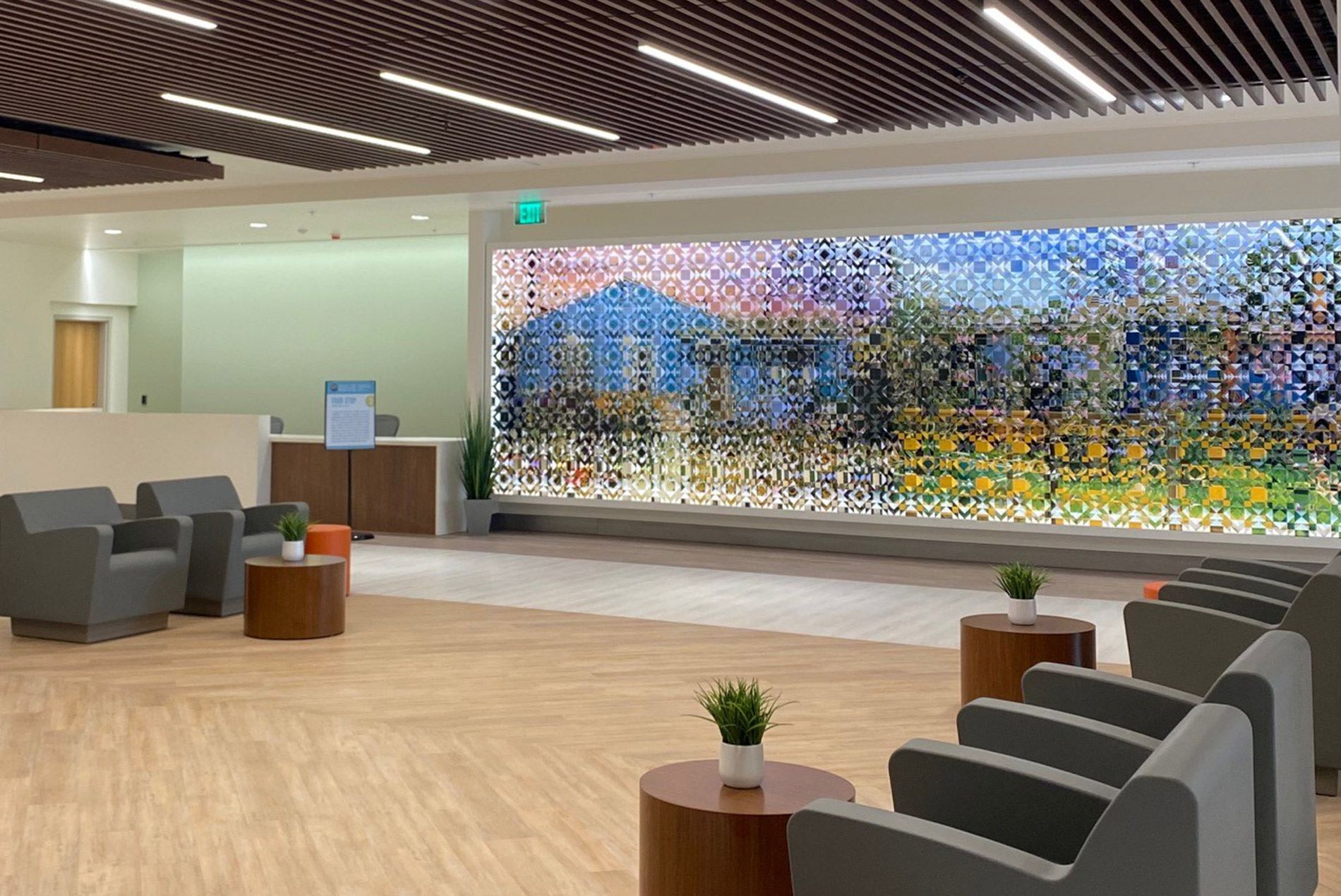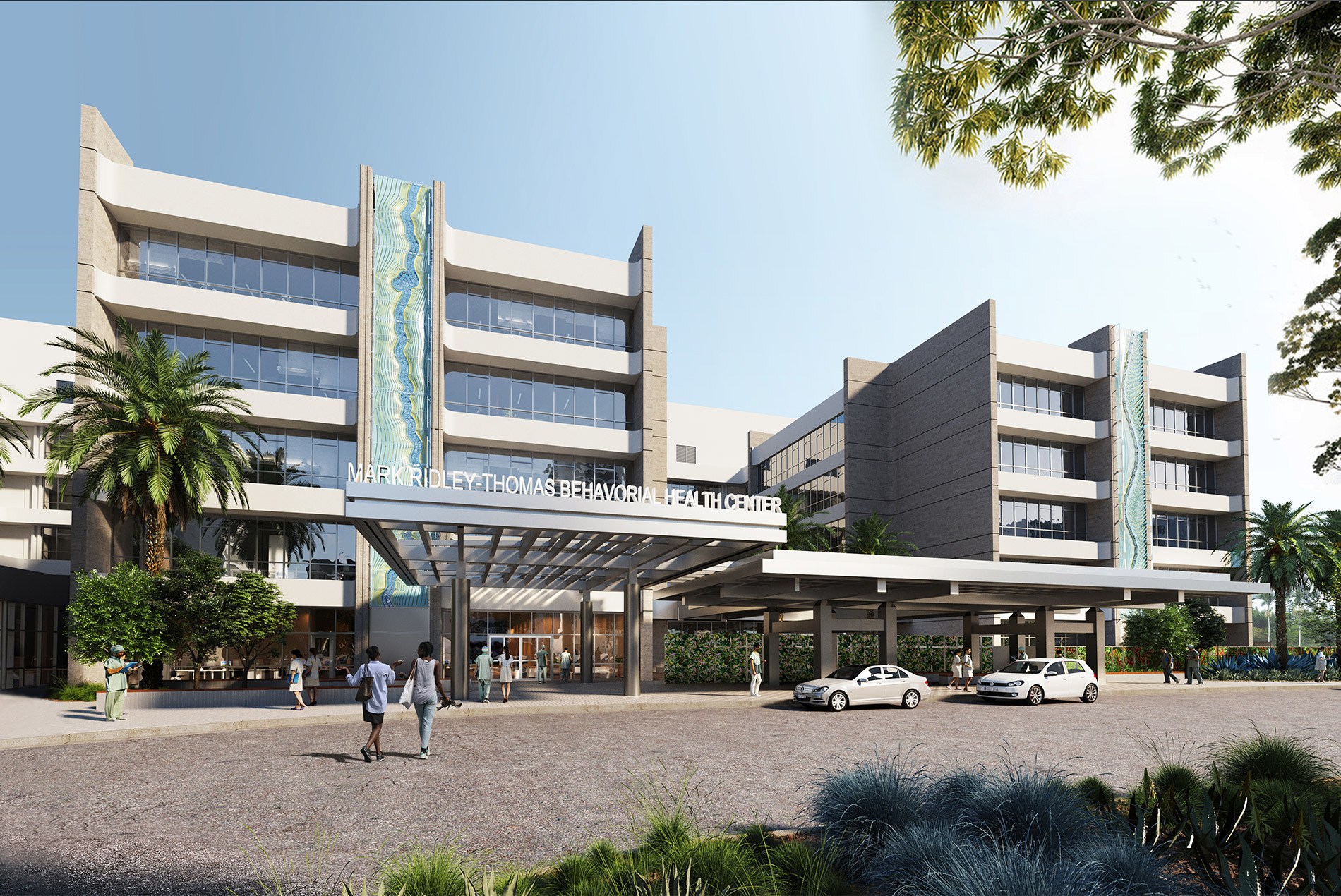As California looks to address its mental health and homelessness challenges, the soon-to-open Mark Ridley-Thomas Behavioral Health Center offers a model for comprehensive care.
By Hunvey Chen and Scott Zeller, MD
California is in the midst of a mental and behavioral health crisis. An estimated 1.4 million Californians now live with a serious mental illness such as schizophrenia, bipolar disorder and major depression. Of those, fewer than 40 percent receive the treatment they need.
In Los Angeles we see the impact of this crisis in the region’s growing number of homeless, the majority of whom live with a mental illness and/or behavioral health condition such as substance abuse. Solving this complex health challenge—made even more difficult in a pandemic—requires both new resources and new care approaches. Fortunately, a model for this type of service exists in the Mark Ridley-Thomas (MRT) Behavioral Health Center that will open next year in Willowbrook.
Named after the newly elected 10th District city council member and outgoing county supervisor who has made healthcare and homelessness centerpieces of his political career, the MRT is the first facility in L.A. to offer truly comprehensive mental and behavioral health. Typically, a person who needs psychiatric care receives treatment at one location and then must travel to two or three additional facilities to access follow-up care and services. The MRT changes that.

Clients visiting the center will have access to outpatient and residential treatment for mental and behavioral health as well as workforce training and justice diversion services. A psychiatric urgent care center on the main floor will serve a critical need of providing patients with immediate treatment for mental illness. This aspect is of vital importance. Statistically, 1 in 8 patients at hospital emergency rooms are there for a behavioral health crisis that most hospitals are ill-equipped to handle.
In creating the MRT, the County wants to ensure no person is turned away or told to find help elsewhere. Five county departments—Health Services, Mental Health, Public Health, Probation, and Workforce Development, Aging & Community Development—contributed to the programming and design of the center. These agencies have often coordinated in addressing mental illness. Now they’ll do so under one roof.
Longtime Angelenos visiting the MRT might be surprised by what they see. The hulking concrete shell that once housed the old Martin Luther King Jr./Drew Medical Center has been completely transformed over the past 12 months.
Art and nature take center stage throughout the building and grounds with murals by local artists, wall graphics depicting regional scenery (such as beaches and mountains) and new park-like grounds and landscaping. Clinical areas in the renovated building feature warm color palettes and soothing residential-inspired furnishings. A conference center and café, also on the first floor, are open to clients, staff and the general public.

Design plays a role in mental health, as patients who feel comfortable and respected in their environment are more receptive to treatment and tend to have better outcomes. An open and approachable facility like the MRT also can go a long way toward eliminating the stigma of mental illness.
Perhaps one of the most special features of the building is the peer resource center located off the main lobby. Staffed by people who have lived experiences with mental illness, the resource center provides drop-in visitors with empathetic concierge-like assistance for handling mental health, addiction and homelessness issues.
This project continues Los Angeles’ national leadership in innovative solutions for previously underserved behavioral health populations. One of the nation’s first EmPATH (emergency psychiatry assessment, treatment and healing) units opened in 2017 at Providence Little Company of Mary Medical Center San Pedro. That facility, designed to provide humane and comforting intensive care alternatives for high-acuity psychiatric patients, has since become a successful model for creating other EmPATH units around the country.
The Mark Ridley-Thomas Behavioral Health Center represents the next step in the evolution. By co-locating comprehensive social and health services into a single facility and designing it to foster healing and compassion, the MRT will set a new standard for mental health care in California and beyond. For that, Los Angeles County and its leadership should be proud.
Architect Hunvey Chen leads HOK’s Healthcare practice in Los Angeles and is co-chair of the Healthcare Committee for the Los Angeles chapter of the American Institute of Architects.
Scott Zeller, MD, is vice president of acute psychiatry for Vituity, past president of the American Association for Emergency Psychiatry, and a former National Council for Behavioral Health “Doctor of the Year.”
